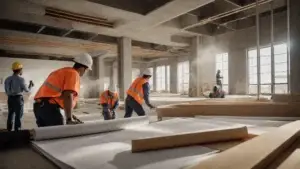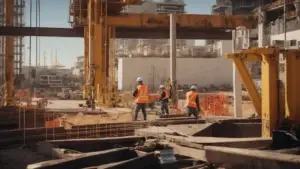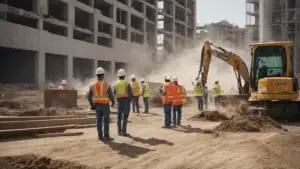Do you know San Diego has one of California’s highest construction activity rates? With countless construction projects taking place in the city, contractors, developers, and property owners need to have a solid understanding of the construction laws in San Diego.
Whether planning a new build or renovating an existing property, navigating the complex regulations can be daunting. That’s why we’ve prepared this comprehensive guide to help you navigate construction laws in San Diego, covering everything from permits and licensing requirements to building codes, contract disputes, and environmental regulations.
So, if you want to ensure compliance and avoid legal issues in your construction projects, keep reading to discover valuable insights and practical tips to steer you in the right direction.
Key Takeaways
- The construction permit process in San Diego involves several steps, including submitting a detailed application and providing architectural plans and supporting documents.
- San Diego contractors must fulfill licensing requirements, including passing a trade-specific examination and providing proof of workers’ compensation insurance and necessary bonds.
- Navigating building codes and zoning regulations is crucial to ensure compliance with safety standards and avoid legal complications.
- Resolving construction contract disputes can be done through mediation or arbitration, quicker and less costly alternatives to litigation.
Understanding Construction Permits
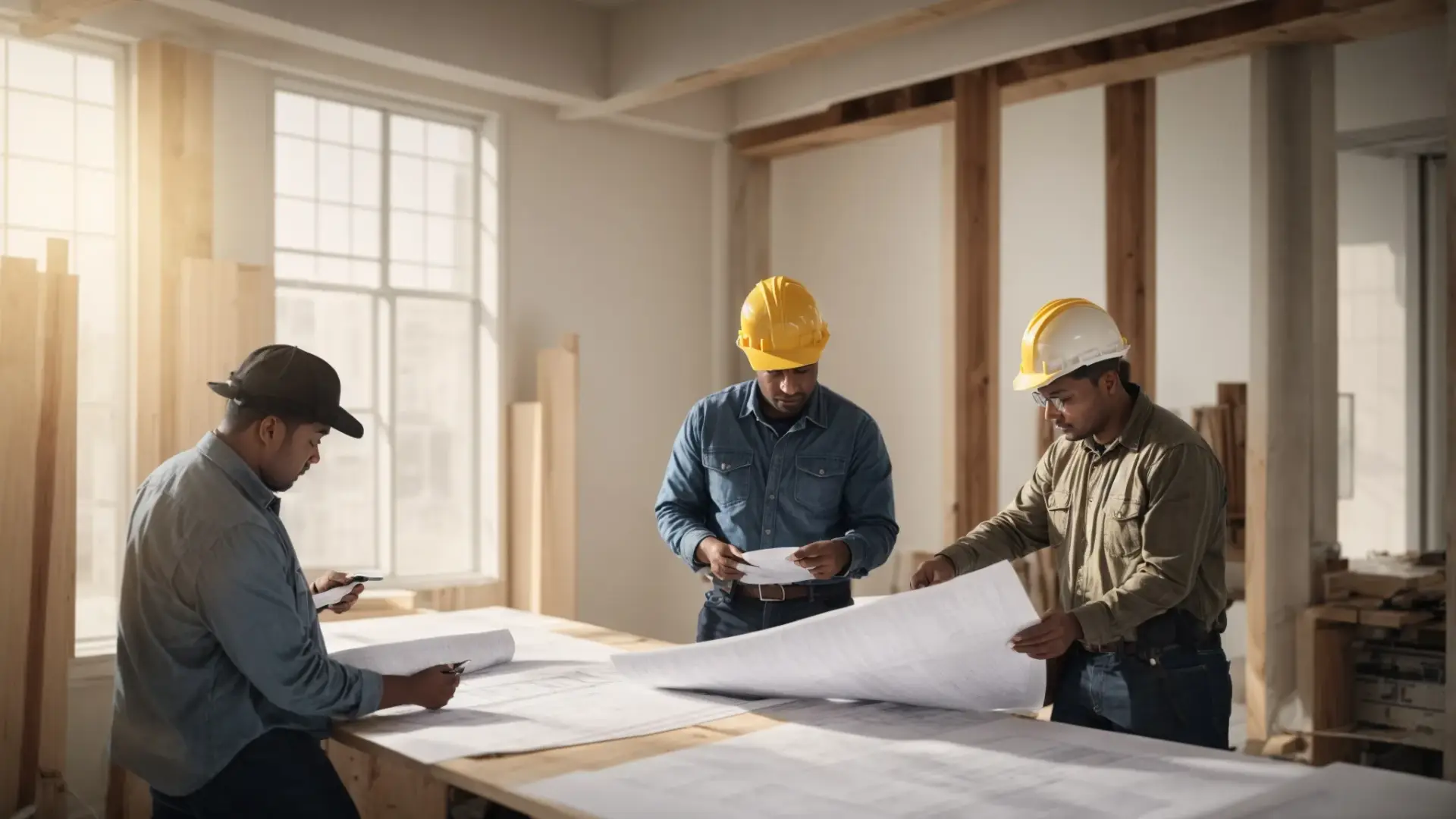
To navigate the construction laws in San Diego, it’s crucial to have a thorough understanding of the process and requirements for obtaining construction permits.
The construction permit process in San Diego involves several steps that must be followed to ensure compliance with local regulations.
First, you need to submit a permit application, which requires detailed information about the project, such as the type of construction, location, and estimated cost. Additionally, you may be required to provide architectural plans, engineering calculations, and other supporting documents.
It’s important to note that the permit application requirements can vary depending on the nature and scope of the project. Therefore, it’s recommended that you consult with the San Diego Development Services Department or a qualified professional to ensure that you meet all the requirements and submit a complete and accurate application.
Licensing Requirements for Contractors
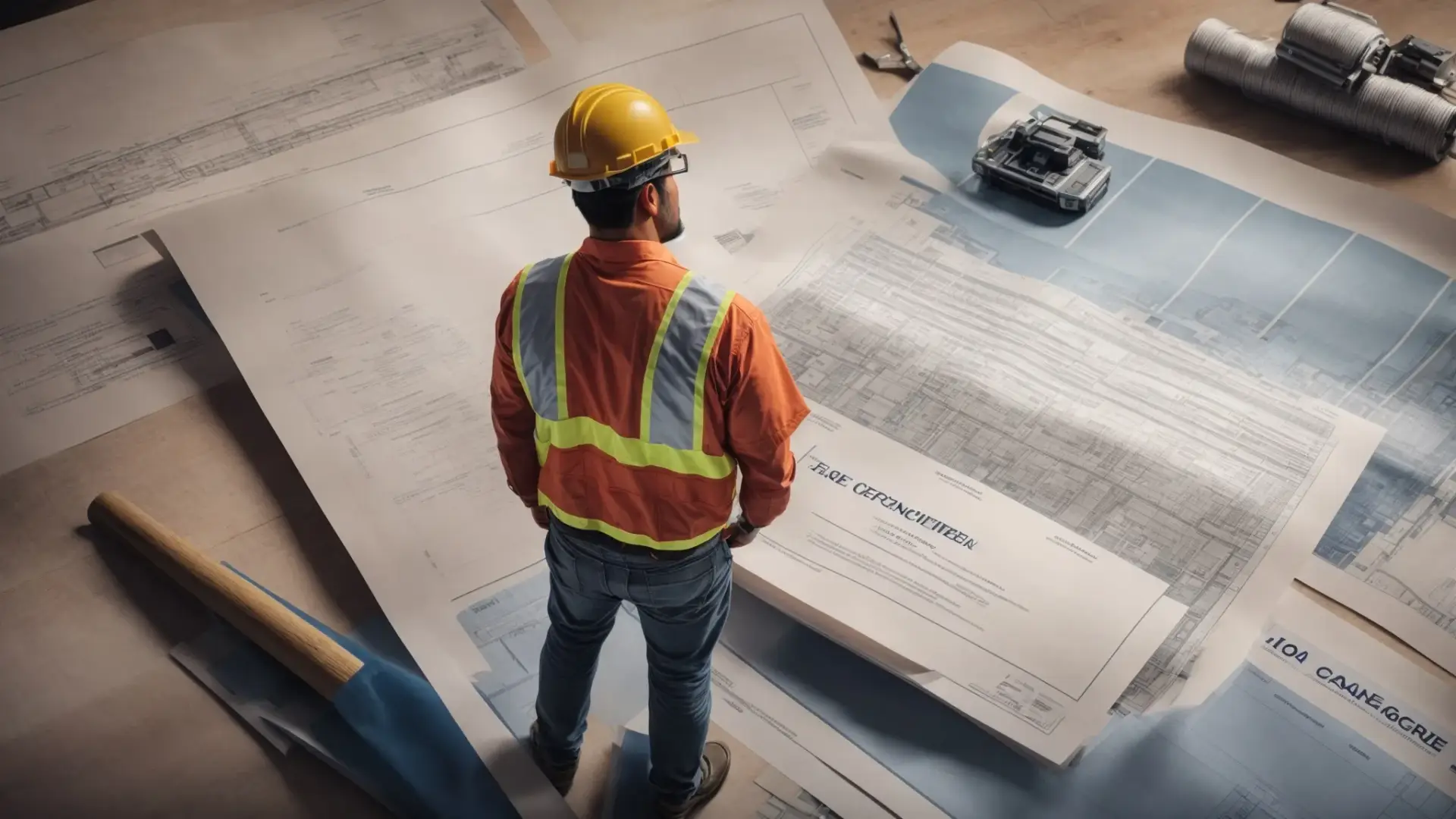
Contractors in San Diego must fulfill specific licensing requirements to operate and perform construction services in the city legally. To become a licensed contractor, you need to meet certain qualifications and go through a licensing process. Here are the key points to consider:
- Contractor Qualifications:
- You must be at least 18 years old.
- You must have a valid Social Security number or Individual Taxpayer Identification Number.
- You must possess the required experience and skills in the trade you wish to be licensed in.
- Licensing Process:
- Apply to the California Contractors State License Board (CSLB).
- Pass a trade-specific examination.
- Provide proof of workers’ compensation insurance (if applicable).
- Pay the required fees and obtain the necessary bonds.
Navigating Building Codes in San Diego
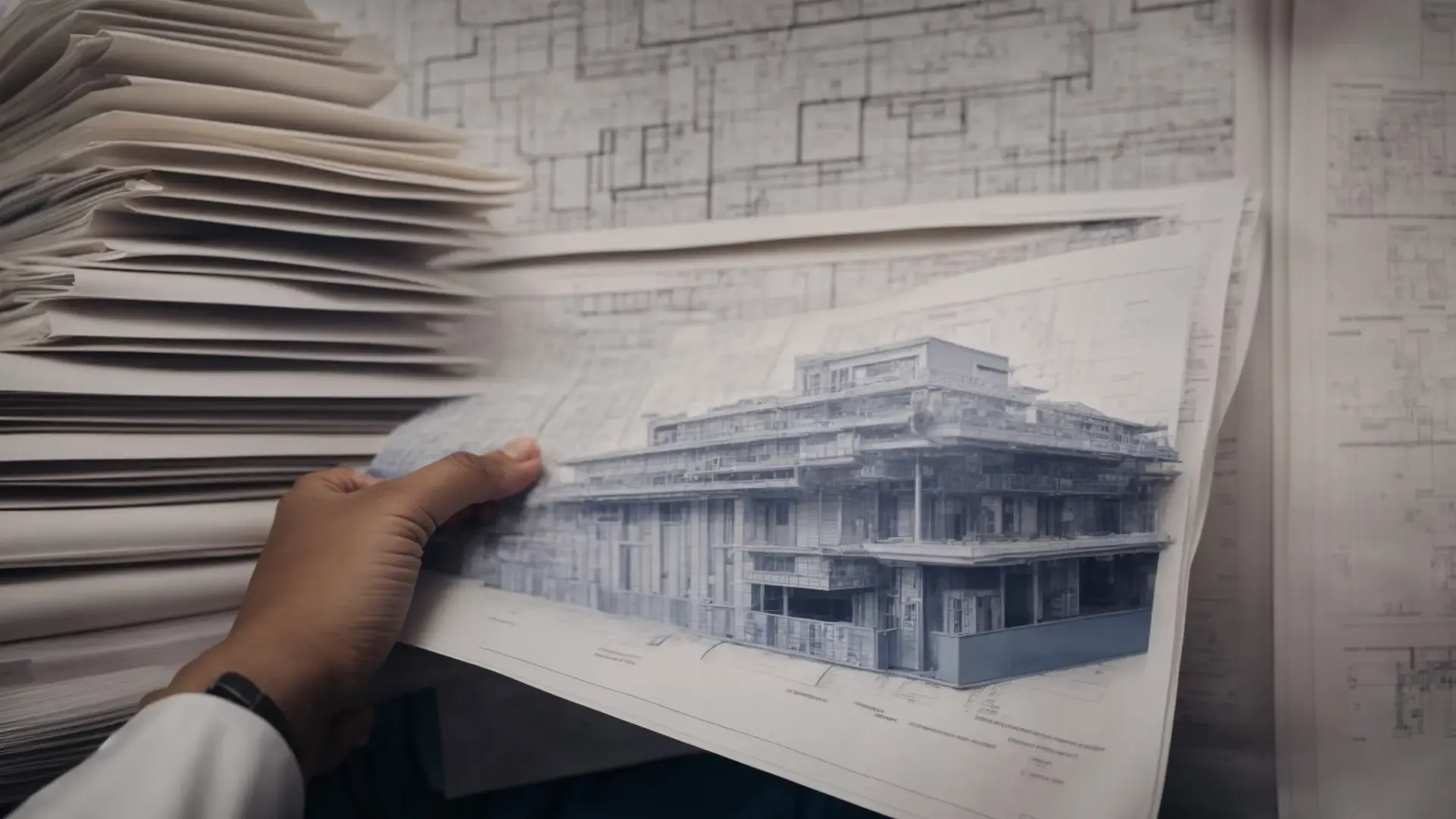
Navigating the building codes in San Diego requires a clear understanding of the local authorities’ regulations and requirements. Construction inspections play a crucial role in the process to ensure compliance.
These inspections are conducted by qualified professionals who assess whether the construction project adheres to the building codes and safety standards. It’s important to note that these inspections aren’t only limited to the construction phase but also include different project stages, such as foundation, framing, electrical, plumbing, and final inspections.
Additionally, zoning regulations must be considered when navigating the building codes. These regulations determine how land can be used and what structures can be built in specific areas. Understanding and adhering to zoning regulations is essential to avoid legal complications and ensure a smooth construction process.
Resolving Construction Contract Disputes
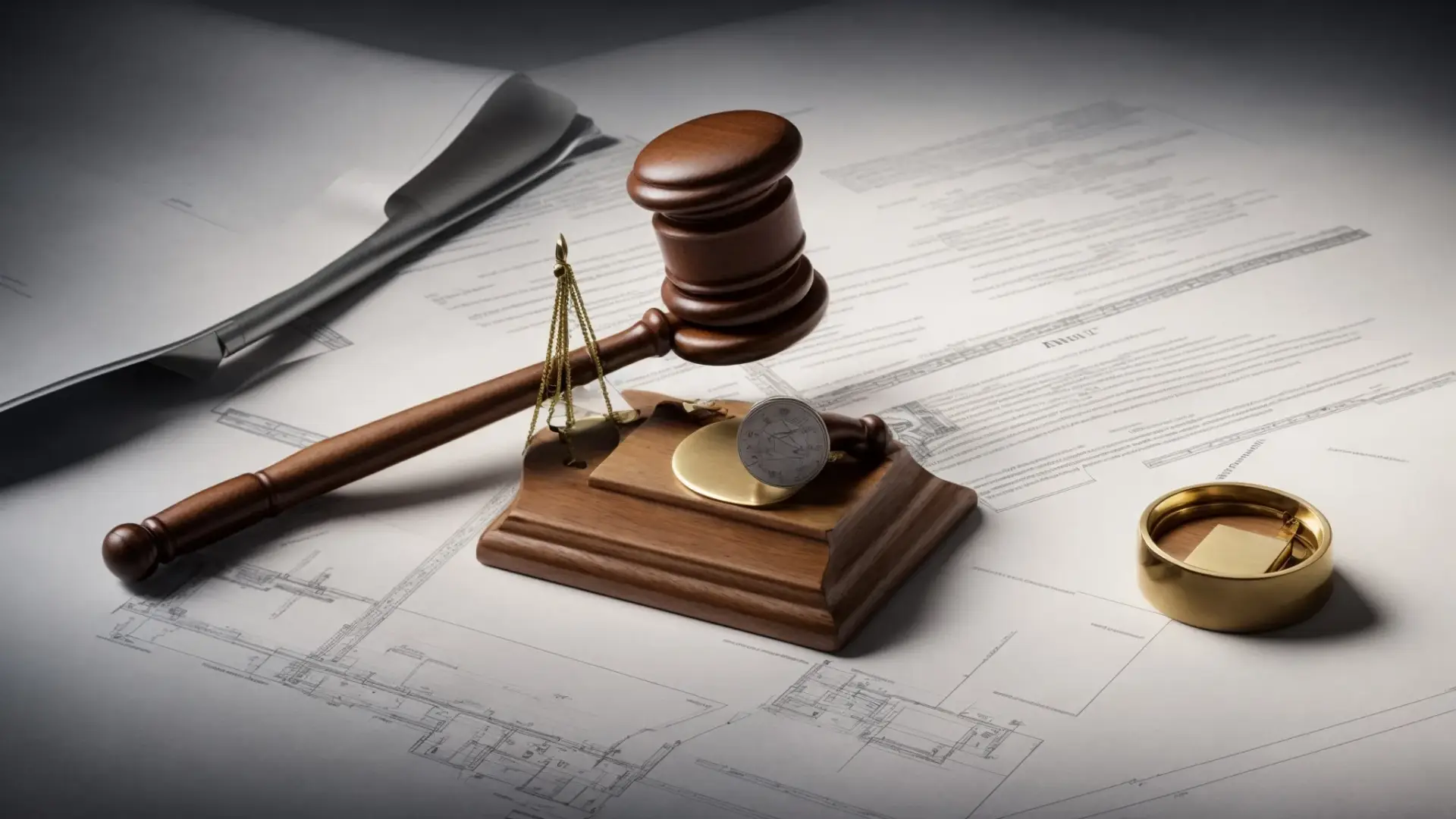
When faced with construction contract disputes, it’s imperative to approach the resolution process thoroughly and precisely. Resolving these disputes efficiently is crucial to avoid costly delays and legal complications.
Here are three methods commonly used in construction contract dispute resolution:
- Mediation Process:
- A neutral third party, the mediator, helps facilitate communication and negotiation between the parties involved.
- Mediation is a voluntary and confidential process to find a mutually acceptable solution.
- It allows for open dialogue and helps preserve relationships between the parties.
- Arbitration Process:
- A more formal alternative to mediation, arbitration involves presenting the dispute to an arbitrator or panel who will make a binding decision.
- Arbitration can be quicker and less costly than litigation, providing a more efficient resolution process.
- The arbitrator’s decision is final and legally binding, closing the dispute.
Navigating construction contract disputes requires careful consideration of the available resolution processes, such as mediation and arbitration. These methods can lead to a timely and satisfactory resolution while minimizing the impact on your construction project.
Compliance With Environmental Regulations
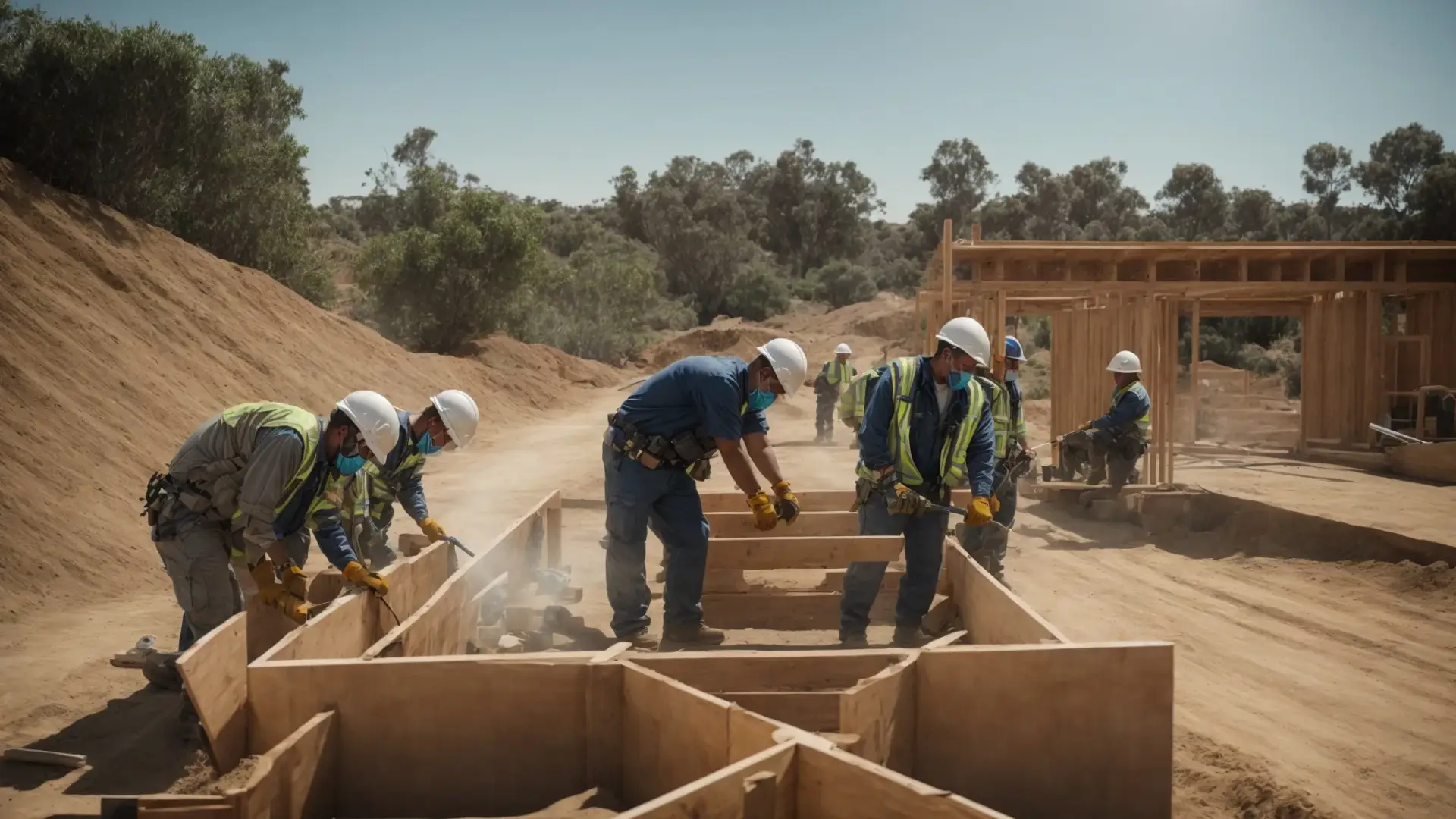
To ensure a successful construction project, adhering to environmental regulations and maintaining compliance throughout the process is crucial.
Environmental impact assessment is an essential step in the construction industry, as it evaluates the potential effects of a project on the environment. By conducting thorough assessments and following sustainable practices, you not only fulfill your legal obligations but also contribute to preserving and protecting the environment.
It’s important to consider factors such as air and water quality, waste management, and the conservation of natural resources when planning and executing construction projects. By incorporating sustainable practices, such as using renewable energy sources and minimizing waste generation, you can reduce the negative environmental impact of your construction activities.
Frequently Asked Questions
Can Homeowners Obtain Construction Permits Themselves, or Do They Always Need to Hire a Contractor?
You can obtain construction permits as a homeowner, but hiring a contractor may be beneficial. They are experienced in navigating construction laws and can ensure the process is thorough and precise.
Are Any Specific Qualifications or Certifications Required for Contractors to Work on Projects in San Diego?
To work on projects in San Diego, contractors must meet specific qualifications and hold the necessary certifications. These requirements ensure that contractors have the expertise and knowledge to undertake construction projects in compliance with local regulations and standards.
How Can Homeowners Determine if Their Construction Project Complies With the Building Codes in San Diego?
To determine if your construction project complies with building codes in San Diego, you must take on certain responsibilities as a homeowner. Research the specific codes and regulations and consult with professionals to ensure compliance.
What Are the Common Reasons for Construction Contract Disputes in San Diego?
Common causes of construction contract disputes in San Diego include breaches of contract, disputes over project scope or quality, and payment disagreements. You can negotiate, mediate, or seek legal action if necessary to resolve these issues.
Are there any specific environmental regulations construction projects in San Diego must comply with?
Regarding construction projects in San Diego, you need to be aware of specific environmental regulations. From obtaining permits to ensuring compliance with building codes, homeowners and contractors must navigate these requirements.


